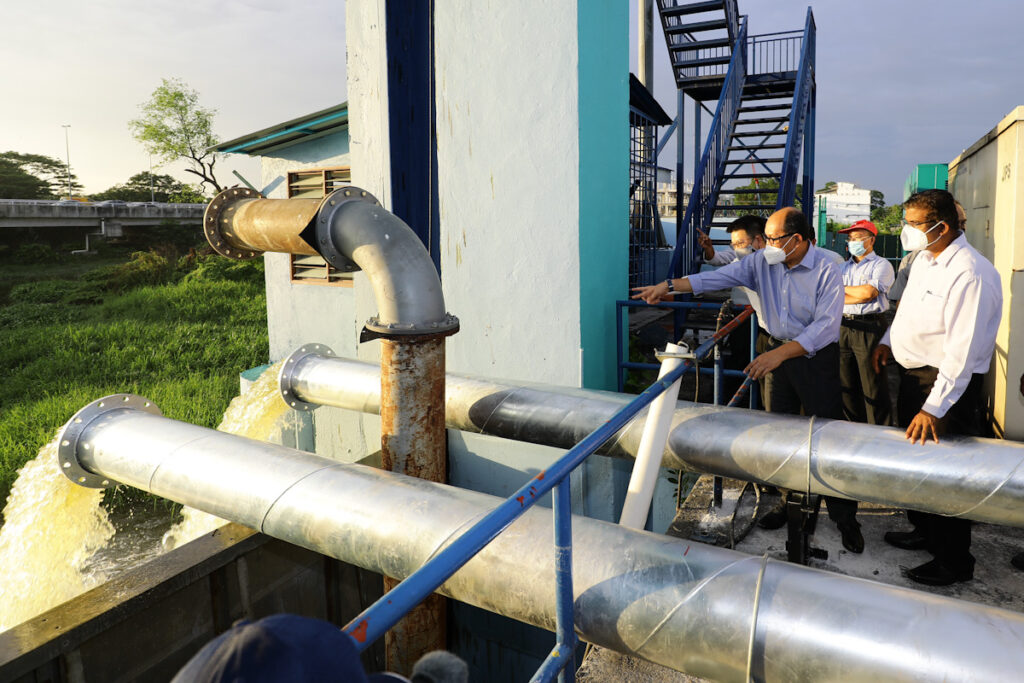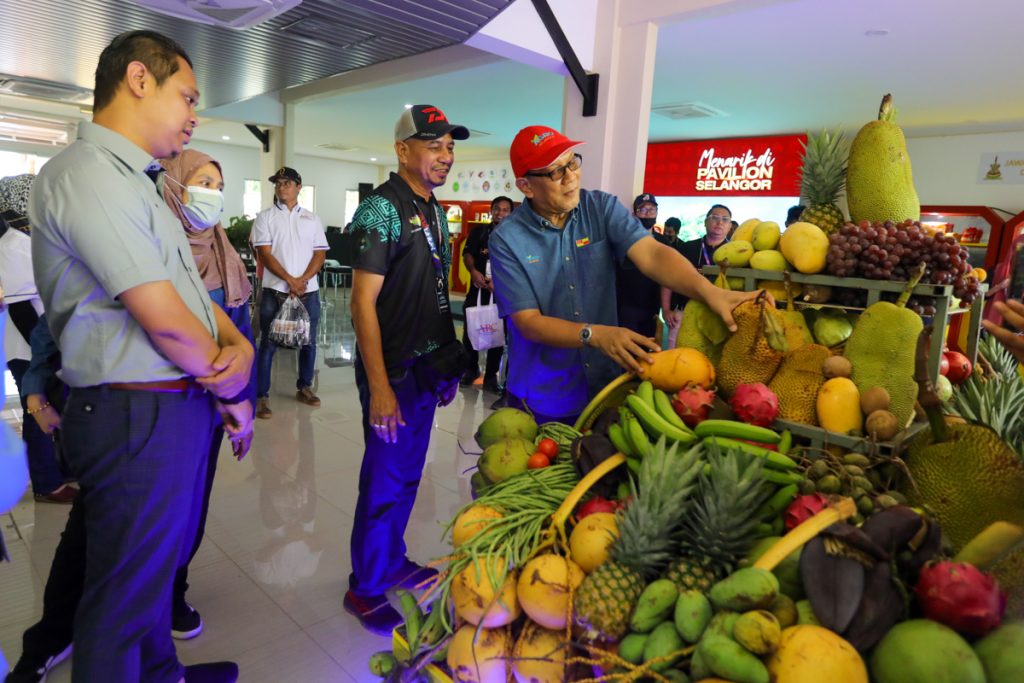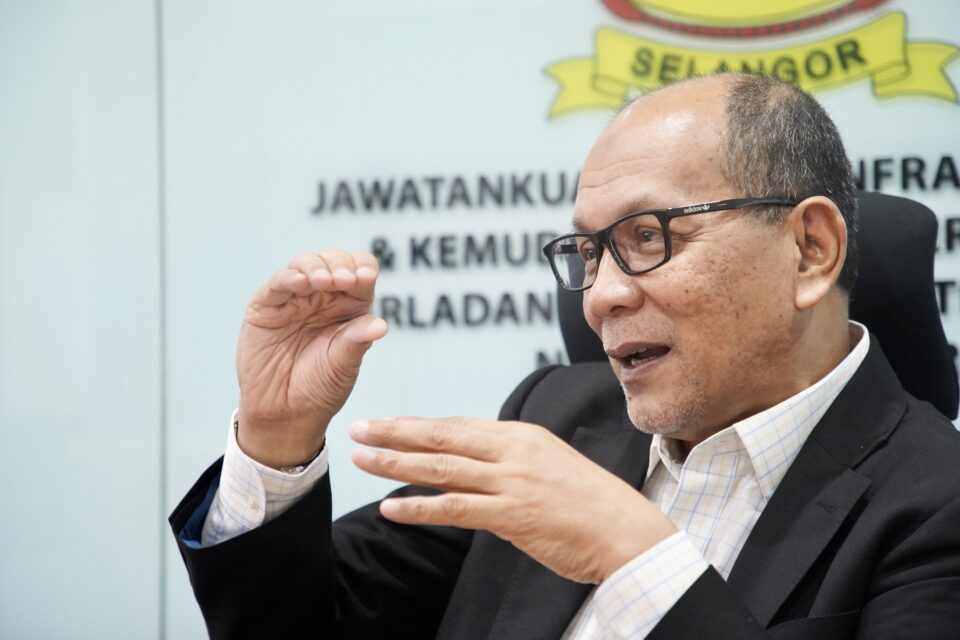By Ida Nadirah Ibrahim
A balance of good infrastructure and agriculture is essential for economic development to be sustainable and inclusive.
Growth is directly impacted by investments in energy, telecommunications and transportation networks and all forms of infrastructure are necessary for the production of goods and services.
As for agriculture, it not only offers solutions for expanding employment opportunities in the industry and improving the income of the community, but it also plays a crucial role in ensuring food security, a factor that is significant in the country’s development, particularly in the wake of the Covid-19 pandemic.
With two significant portfolios under his name, Infrastructure and Public Amenities; Agricultural Modernisation and Agro-based Industry Committee chairman Ir Izham Hashim, who has an engineering background and is an experienced local councillor, acknowledges the difficulties in striking a balance between the two and said that being at the policy-making level presents its unique challenges.
“When I first developed the Selangor Agro Transformation Plan (PeTA), it called for the agricultural sector to be sustainable and environmentally friendly. However, aside from the industrial factor, another cause of the pollution of our water sources is agriculture.
This doesn’t make sense because I am in charge of both water and agriculture.
“Therefore, we need to learn to coexist and develop a plan on how to ensure that our water remains unpolluted and our crops are fertile. And the answer to this is organic farming, which we have encouraged and championed across the state,” he said.

Izham stated that providing practical and sustainable infrastructure helps to a great extent in the development of Selangor. This includes providing solutions for advanced telecommunication networks, building and maintaining highways and roads, managing water sources and treated water supply, creating digital infrastructure, and providing energy. All of these, he said, are costly and demand large budgets.
“When we are at the policy-making level, surely the challenges are different.
If you notice during the State Legislative Assembly sittings, a lot of the questions raised are on infrastructure and this is because as an advanced state, people have high expectations of seeing the best infrastructure.
“Of course, the development cost of infrastructure isn’t small, which is why when you look at allocations for flood mitigation efforts costing RM1 or RM2 billion, it may sound like a lot but it isn’t for infrastructure projects. Although we get some funding from the Federal (government), it has to be managed with proper coordination and prudence,” said Izham in a recent interview with Selangor Journal.
As for agriculture, Izham said coming up with an effective plan for the industry to accommodate the limited land for farming that is also expensive poses one of the challenges. To this, he said that the agriculture sector in Selangor needs these considerations — that it can produce high-value products, that it must go through modernisation, that it must be a complete supply chain, and for it to include agropreneur development and agrotourism.
“We act as pioneers of many policies developed for both infrastructural development and agriculture in Selangor.
For example, we are the first to the Selangor Utility Corridor (Kusel), which is an agency that manages the process of installing utilities to ensure better planning, and we came up with a holistic approach to safeguard our water sources under the Selangor Raw Water Security Scheme (SJAM). We are also the first state to reuse wastewater for industrial use, which currently is being done in Setia Alam.
“Soon, we will also be introducing the Selangor Connectivity Master Plan (SCMP) to ensure the continuity of telecommunications and the IoT (Internet of Things). The initiative, which is currently in the implementation process, will also play a role in narrowing the digital gap between the rural and urban areas.”
Ahead of time
Looking back on when he was first handed the portfolio in 2018, Izham recalled that the policies in place then were not suited for the present time.
He said that during his five-year tenure, he had made sure that all the programmes and policies developed could be continued in the coming years and would only require improvements to meet current needs.
“Throughout the past five years, even though I was previously an engineer and a local councillor for 10 years, the experience as a state executive councillor of Selangor had really challenged my capabilities and placed immense pressure because we want to give the best.
“I hope that when we have achieved all that we have done in developing the master plans, whoever succeeds would continue with them because they would ease the implementation process in the future.”

Izham cited the PeTA, SCMP and the state’s highway development plans as examples that would help the future state administration implement their policies.
“When I first came in, suffice to say there was not much in place. Even for the agriculture sector, for example, they had a thick document on the state agricultural policy which in my opinion was more suitable as academic material.
What we need is to form a document that would be practical to be implemented.
“I made sure that these documents are living documents that could adapt to changes. Though it may not be drastic changes, change is inevitable and the policies would be able to adapt to it,” he said.
Ensuring equitable growth
Izham said that the First Selangor Plan (RS-1) and the Smart Selangor Action Plan to 2025 (SSAP 2025) have underlined measures that would propel the state into becoming a smart state by 2025.
He said that both physical and digital infrastructures are among the main contributing factors to the development of a state, and will be the driving force for his committee to develop more programmes.
“The development plan has to be holistic and involve the participation of various parties, including the local authorities, private sector, and the public.
“If the infrastructural development fails, then this would hinder the development of other sectors as well,” he said.
Izham is in charge of two of the mega development projects under the RS-1, namely the Sabak Bernam Area Development (Sabda), which focuses on developing the agriculture sector in Sabak Bernam, and the Economic Development Zone of the Selangor Maritime Gateway (ZPE SMG).
“ZPE SMG is an example of an effort where we focus on river conservation and developing its surrounding area to show that the river is the theme of the development and becomes a valuable asset to the state.
“The river quality would first have to be improved before we can proceed with residential and commercial developments. In Sungai Klang, we cleared waste in the river that was three metres deep. Then, the river was seen as something useless where we would dump all our waste. This perception is wrong because the river is the source of our water supply.
“We will prove that failure is not an option. When we succeed in this development project in Sungai Klang, we can do it with other rivers, such as Sungai Langat and Sungai Selangor.
“But if we fail, then other areas will fail as well. Which is why we have to ensure that the development of SMG succeeds.”
This article first appeared in the Selangor Journal monthly April edition, published on April 8, 2023.





